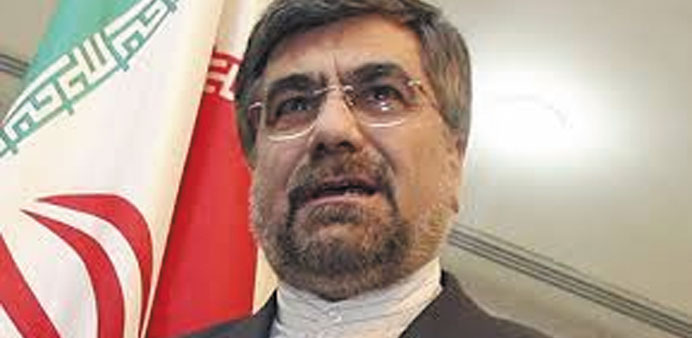Iran will not be able to keep up forever its ban on legal access to Internet hubs such as Facebook, which has 4mn Iranian users, Culture Minister Ali Janati said yesterday.
Such remarks by an Iranian official would have been unimaginable before President Hassan Rohani, a reputed moderate, took office in August with a vow for more freedom.
“Four million Iranians are on Facebook, and we have restricted it,” said Janati.
“We cannot restrict the advance of (such technology) under the pretext of protecting Islamic values,” said the minister.
Access to the popular social networking site - along with others which Iranian authorities regard as un-Islamic, immoral or undermining the Islamic establishment - is obstructed by a massive filtering mechanism.
But tech-savvy Iranians have resorted to measures, known as anti-filters, to circumvent the restrictions.
Janati drew a parallel with a ban on fax machines and video tapes and players imposed the 1979 Islamic revolution.
“If we look back, we see many of the actions we took after the revolution were ridiculous.”
Rohani has adopted a policy that promises greater tolerance on social, cultural and media issues - a vow that helped him beat his conservative opponents in the presidential election last year.
But the government has faced resistance from hardliners resisting a reversal in such policies.
A committee of 13 members determines what online content can be reached on Iran’s Internet, which is notoriously slow.
Unapproved sites are put under the filtering system. The ban includes Facebook, Twitter, YouTube and numerous other sites, including blogs.
Yesterday, Janati suggested that the government was working to remove the online constraints.
“The six ministers who are members of the (filtering) committee have clearly stated that we cannot continue to isolate ourselves from the world,” he said.
But, he added it would take time.
Despite the bans, several Iranian officials are active on social networking sites.

